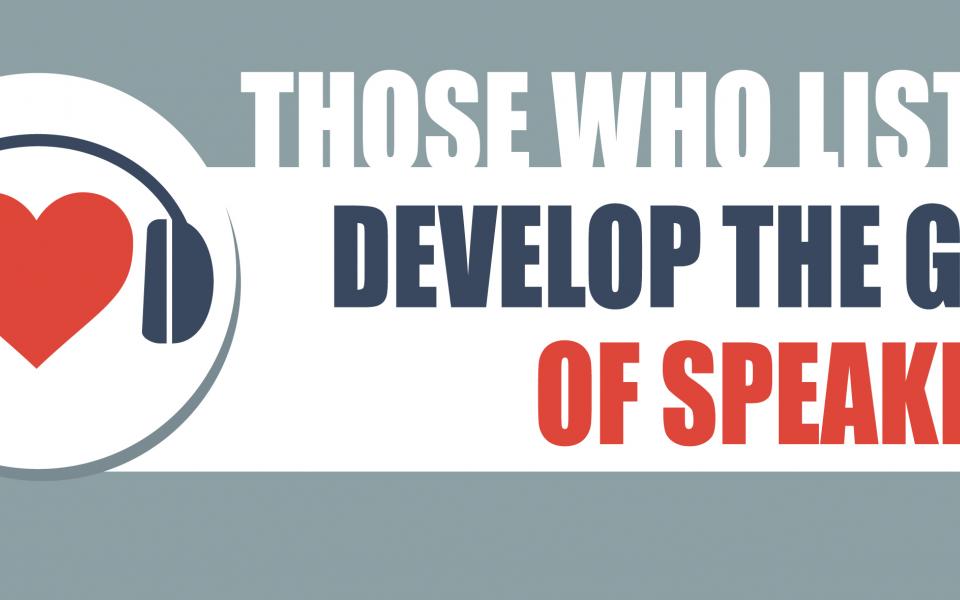
Words can destroy.
Words, uttered quickly or harshly can cause anger or sadness. Words, out of context, meant in a different way, can even have a devastating effect. Once uttered, they cannot be retrieved. The impact of spoken words and language is greater than we dare to assume.
We have learned to speak, but we have forgotten to listen.
As long as politics exist, the question has been raised: "Listen to the citizen, please." The strategy of confrontation politics use, makes it difficult to be really receptive to another person. One debates a lot, without really listening. Therefore, one constantly needs rhetoric, everywhere and abundantly, in order to convince someone else.
Not listening intently is an illness of our times. In politics there is an increasing strain in relations between people. This results in a kind of oxygen shortage which hinders "listening to each other."
Listening starts where talking stops.
Listening with half an ear is not listening. It is about making time, to empathise and to give the other person space. It means to hear what the other is saying or stronger: to hear what the other finds difficult to express. You become partner of his or her experience.
Listening happens for 30% with our ears and for 70% with our heart. The correct words at the right moment can do wonders, because they can comfort, heal and help liberate. The one who understands the art of listening, is also capable of finding the right words.
To be able to listen, therefore, is telling.
Movement without a Name (MWN / BZN) CC and URI Europe wish to contribute to a better world in a substantial manner. We want to set an example and have therefore introduced the URI Europe proverbs. They are meant to inspire and spark conversation. You can subscribe to the URI Europe monthly proverbs for free. Click here to find out more.
